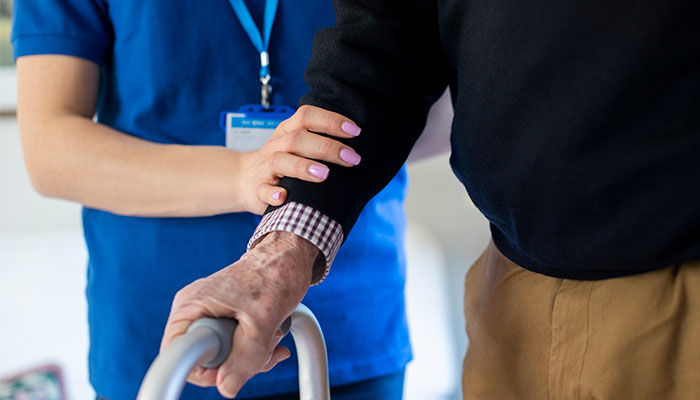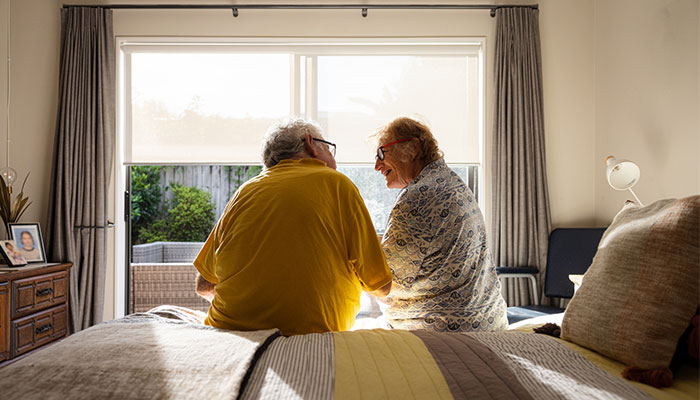The new research published by a team at the Australian Institute of Health Innovation at Macquarie University in the journal BMJ Open, found that 40 per cent of aged care home residents were given “potentially inappropriate” psychotropic medicines over a two year period. And 70 per cent of the people who had received such medicines experienced at least one fall, with a third being transferred to hospital.

Psychotropic medicines, such as antidepressants and antipsychotics, are often given to older people to treat conditions such as anxiety, difficulty in sleeping and depression. But the downside is that the drugs impact the central nervous system, putting older people at greater risk of a fall.
“When older people experience a fall, the injuries can be very serious including fractures and head injuries,” says PhD student Narjis Batool, who conducted the research under the supervision of Dr Nasir Wabe.
The paper calls for regular medication reviews in aged care homes “to reduce the unnecessary use of potentially inappropriate medicines," Ms Batool says.
“Medication reviews can alert clinicians and other care staff to a resident who may have been on a medication longer than the recommended time."
Aged care facilities could consider introducing training to help staff recognise people at risk of a fall, she says, and look at implementing prevention strategies, as well as exercise programs to increase the strength and balance of residents, as well as better lighting to prevent trips.
The study drew its data from 23 residential aged care facilities in Sydney caring for over 3000 older people.
Alternative treatment strategies
Senior author of the paper, Dr Nasir Wabe, said falls continue to be one of the leading challenges in aged care.

"Medications are a common yet modifiable risk factor in falls among aged care residents, highlighting the opportunity to prevent falls through targeted interventions,”, says Dr Wabe, a Senior Research Fellow at the Australian Institute of Health Innovation (AIHI).
"The Australian government has facilitated access to medication review services through initiatives such as embedded pharmacists and the Residential Medication Management Review programs, and providers are encouraged to make the most of these opportunities."
Ms Batool said that this study, done in conjunction with four co-authors from the Australian Institute of Health Innovation, was more detailed than previous research on the links between psychotropic medicines and fall injuries among older people.
Unlike other studies, she says, it examines medicines that were actually administered to aged care home residents. This is better than just looking at drugs which are prescribed, because these are not always administered.
Ms Batool said that this study also breaks down different types of falls by their level of seriousness. While 70 per cent of aged care home residents who used potentially inappropriate psychotropic medicines had at least one fall, the breakdown shows that 54 per cent experienced an injury from the fall and 30 per cent required hospitalisation.
In the paper, the authors note one limitation of the study is that the 23 residential aged care facilities which supplied data were from one provider and are possibly not representative of all facilities in Australia.
Ms Bartool says the research highlighted the need for more awarenesss on the use of non-medication based treatments for aged care residents experiencing mental health issues, such as behavioural therapy, social interaction and group activities.
Dr Nasir Wabe is a Senior Research Fellow at the Australian Institute of Health Innovation.



